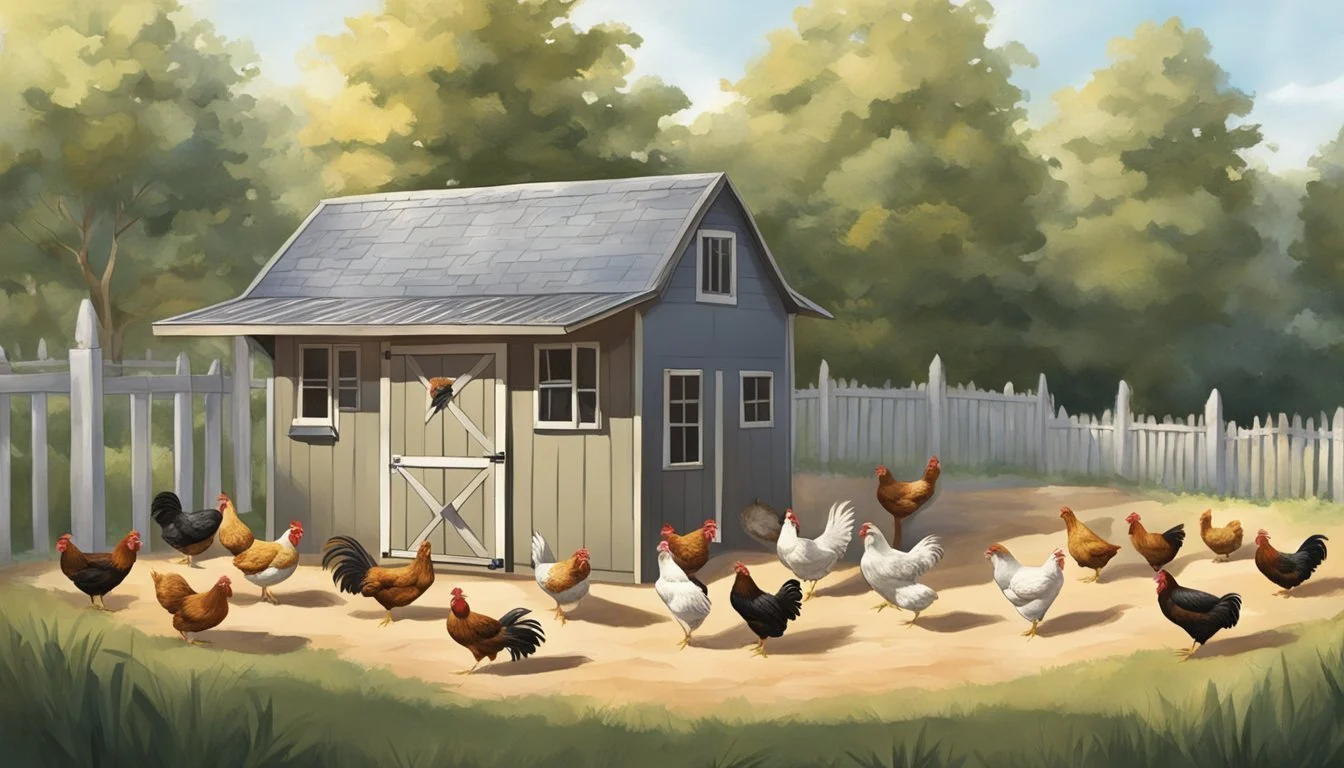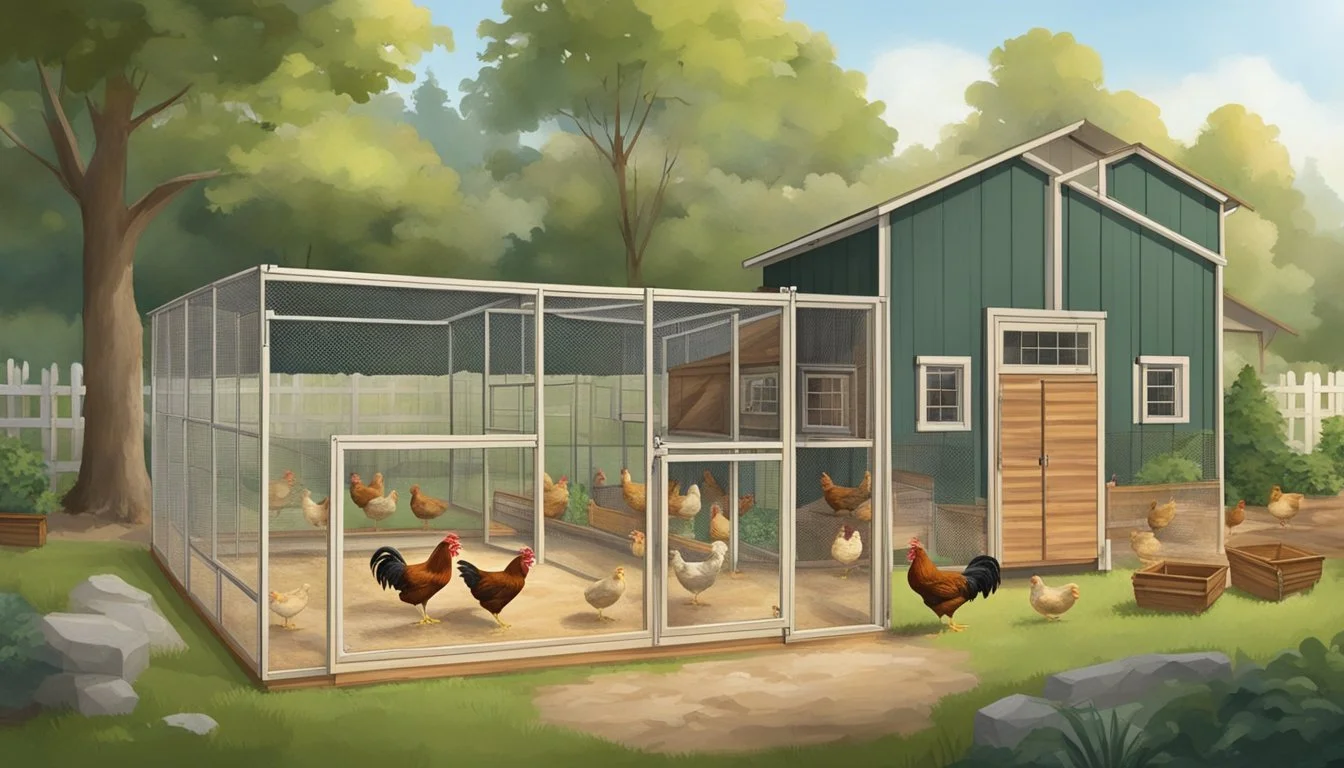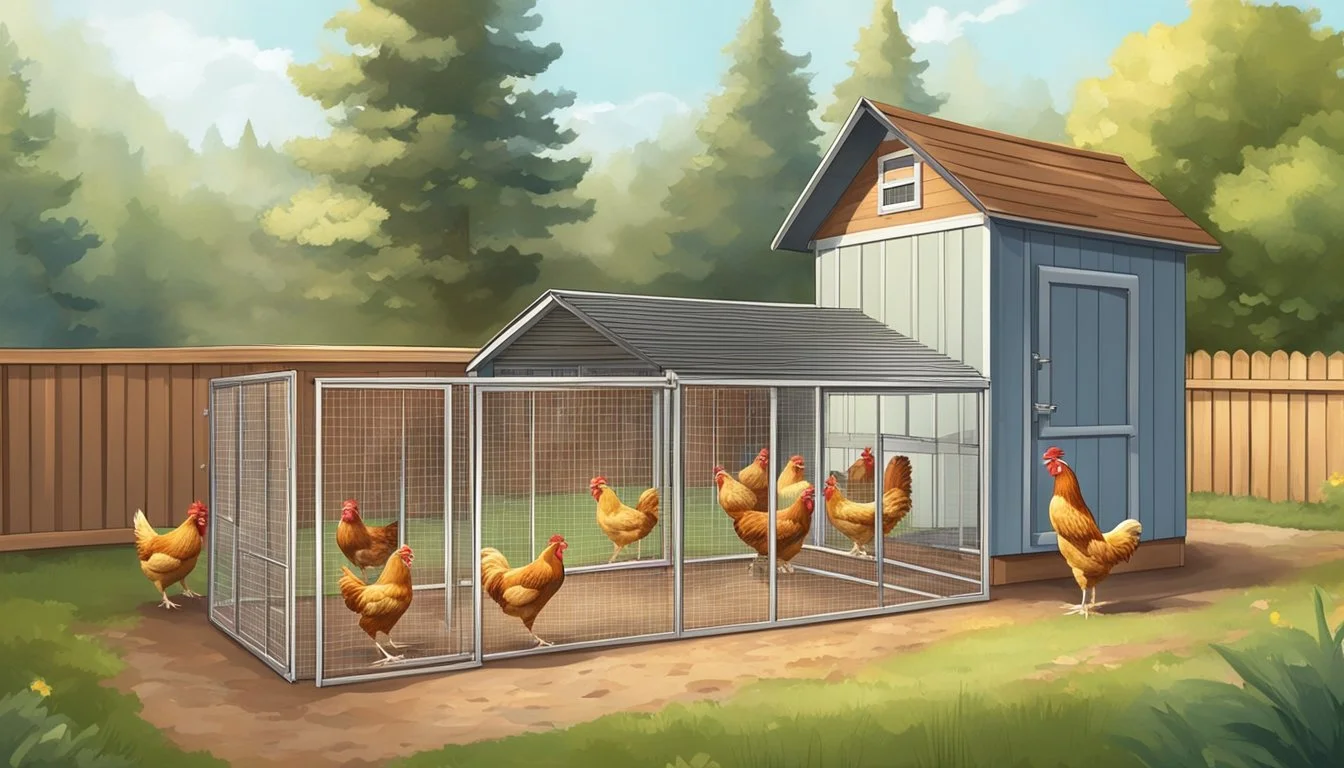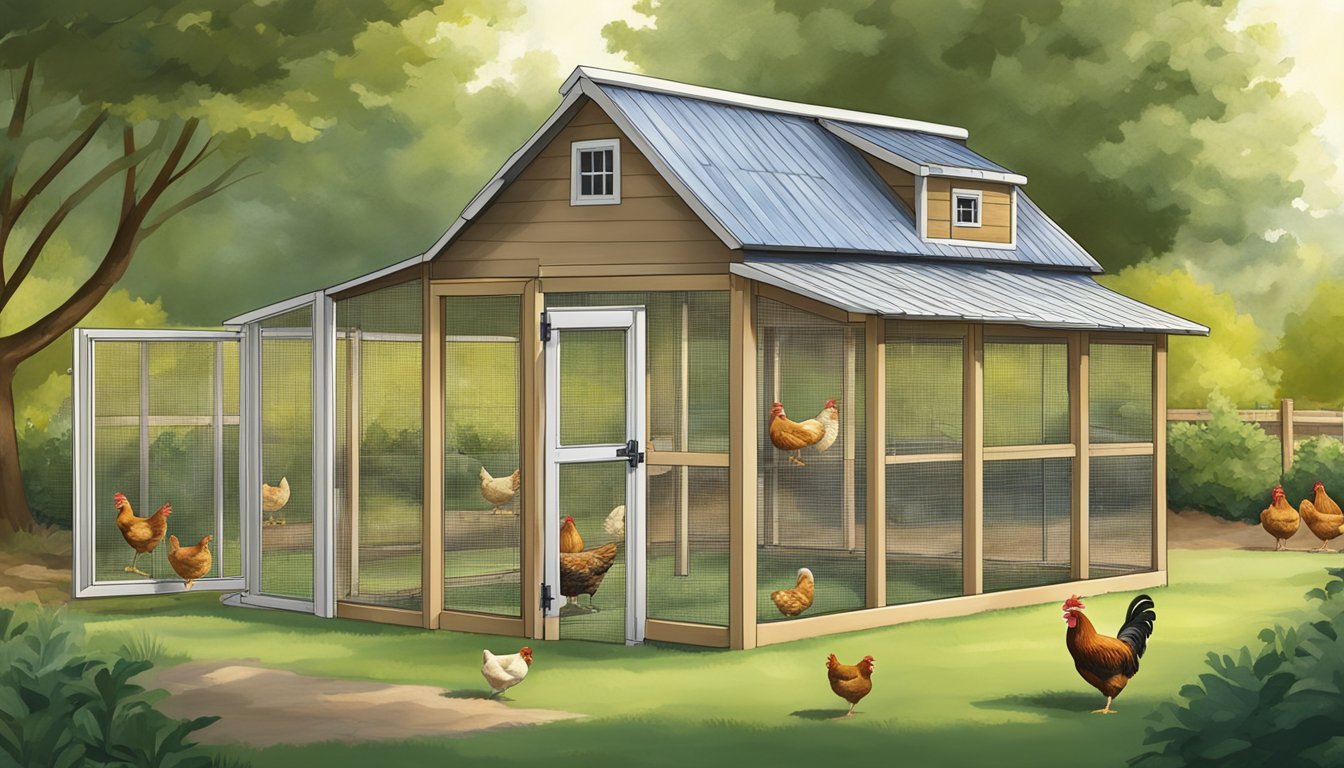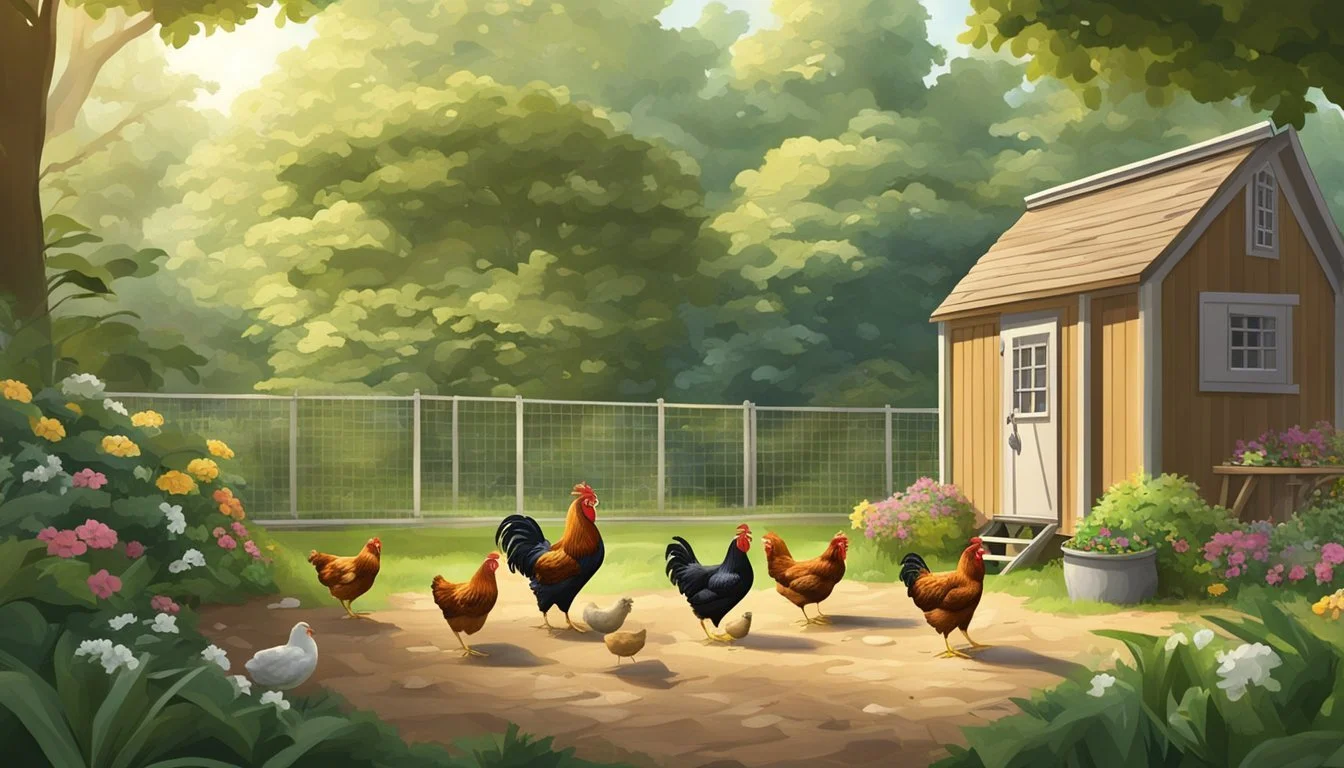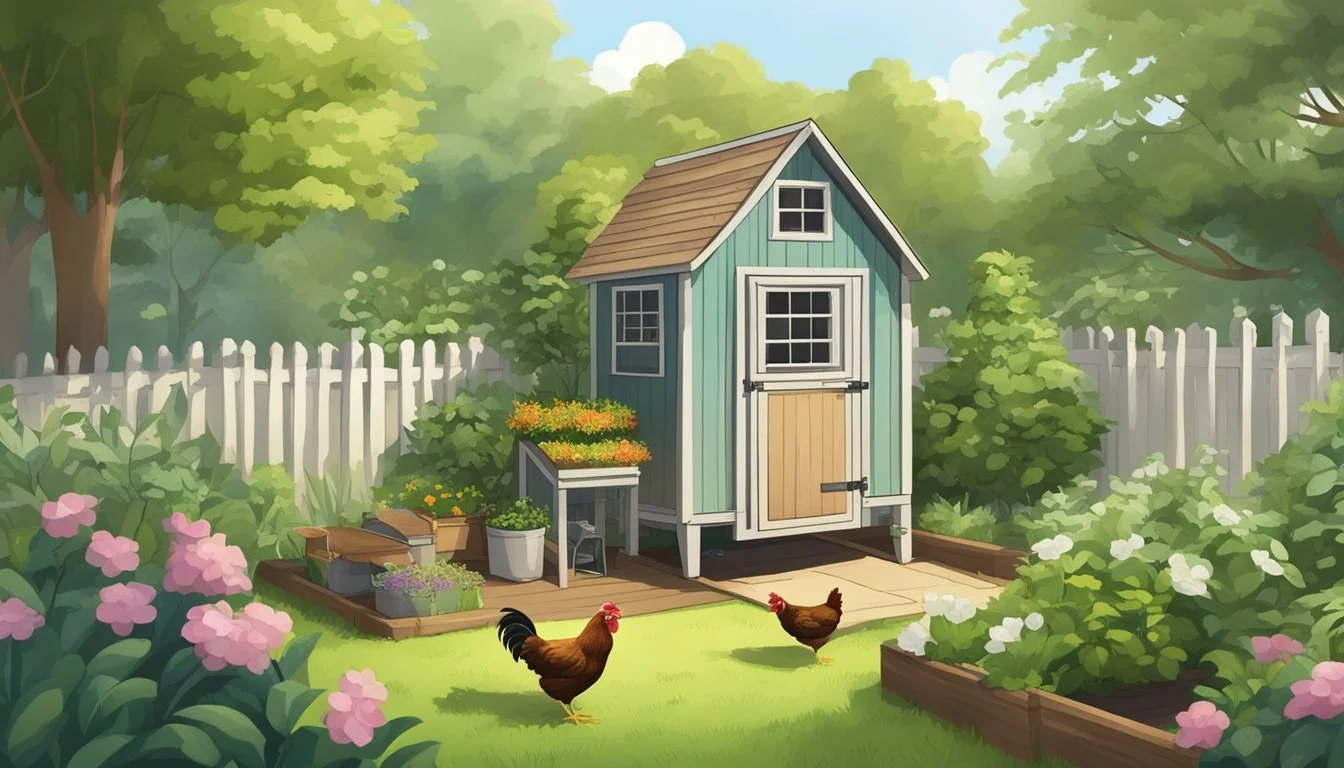Keeping Backyard Chickens in Concord, NC
A Guide to Local Regulations and Best Practices
Raising backyard chickens in Concord, North Carolina, has become a topic of growing interest for residents seeking to embrace a more sustainable lifestyle and have greater control over their food sources. However, the city of Concord currently has restrictions that prevent homeowners from keeping chickens on their property. This stance underscores the necessity for prospective chicken keepers to be well-informed on local ordinances, understanding that rules can differ significantly from one municipality to another within the state.
On a broader scale, the North Carolina State Extension provides valuable resources for residents interested in poultry keeping. They offer guidance on a range of relevant issues, from selecting the right breeds to managing the health and well-being of the birds. While the benefits of maintaining a backyard flock include a steady supply of fresh eggs and the joy of watching the birds, aspiring chicken owners in Concord must navigate and potentially challenge existing regulations in order to legally participate in this rewarding practice.
Advocacy for change has seen residents petitioning to amend the local laws, suggesting that with enough community support, urban chicken keeping could become a reality in Concord. Such endeavors point to the importance of community engagement, research on successful management practices in nearby areas where chicken keeping is permitted, and a thorough understanding of the potential impacts of backyard flocks on the local environment and community.
Understanding Local Ordinances and Zoning
When considering the keeping of backyard chickens in Concord, NC, it is essential to be aware of local ordinances and zoning laws as well as the state laws which govern this practice.
Concord Specific Requirements
City Ordinances: In Concord, NC, the Concord Development Ordinance (CDO) regulates land development and includes zoning laws. These ordinances lay out specific zoning districts and the types of land uses allowed in each, including provisions for backyard chickens. Individuals looking to keep chickens need to refer to the CDO to understand the permissible activities in their specific zoning district.
Zoning Office Contact: It is advisable for residents to contact Concord's zoning office directly for guidance and the most current regulations.
Noise and Distance Regulations: The city has established rules concerning the distance chicken coops must be from neighboring properties and noise restrictions. For instance, keeping roosters, which are known for being loud, is prohibited in Concord due to their potential to cause noise disturbances.
North Carolina State Laws
Zoning Variability: While backyard chickens are widely allowed across North Carolina, zoning laws can vary significantly from county to county and between cities such as Raleigh, Durham, and Charlotte. Therefore, residents in other parts of the state should not assume Concord’s regulations apply elsewhere.
Statewide Guidance: The state's regulations often serve as a baseline, but local ordinances take precedence and provide detailed guidance on keeping backyard chickens. Residents in Concord and throughout North Carolina should ensure they are compliant with both their local city chicken ordinances and any applicable state laws.
Setting Up Your Chicken Coop
When establishing a chicken coop in Concord, NC, key considerations include location, design, safety, and features. A well-designed coop keeps chickens secure and healthy.
Choosing the Right Location
A coop should receive adequate sunlight and have well-drained soil to prevent puddling and dampness. Shelter from strong winds is essential, so positioning the coop near natural windbreaks can be beneficial.
Coop Design and Size
The size of the coop must accommodate the number of chickens housed – typically, 3-4 square feet per bird inside the coop and 10 square feet per bird in the run. Proper ventilation is crucial to dissipate ammonia fumes and maintain good air quality, reducing respiratory issues in the flock.
Safety and Protection Considerations
Chickens are vulnerable to predators and pests like raccoons and rodents. Secure latches and sturdy fencing are necessary to thwart determined intruders. Hardware cloth is preferred over chicken wire for its increased durability and effectiveness at keeping predators out.
Important Features for a Healthy Flock
Litter: Pine shavings are a popular choice for bedding, aiding in moisture absorption and odor control.
Nesting Boxes: Allow for 1 box per 4 to 5 hens, with easy accessibility for both hens and keepers for egg collection.
Roosts: Provide elevated perches for nighttime roosting, helping to prevent mite infestations and keep chickens warm.
Feeding/Water Stations: Should be easy to clean to maintain hygiene and prevent disease.
Choosing Your Chickens
When embarking on the adventure of raising backyard chickens in Concord, NC, it's essential to make informed decisions about the breeds you choose, understand their growth stages, and know where to acquire them.
Selecting the Right Breeds
For prospective chicken owners in Concord, selecting the right breed is crucial based on climate adaptability, temperament, and egg production requirements. Popular breeds for backyard flocks include Rhode Island Reds, known for their hardiness and egg-laying capabilities, Leghorns, which offer prolific egg production, and Barred Rocks, appreciated for their dual-purpose nature. For those interested in heritage breeds, the American Livestock Breeds Conservancy provides a list of breeds like the Dominique and the Plymouth Rock. One can refer to tools such as the "IcYouSee Handy-Dandy Chicken Chart" for detailed breed information.
Understanding Chicken Development Stages
Understanding the development stages of chickens is important for proper care. Chickens generally develop in stages from chicks, to pullets (young hens) or cockerels (young roosters), and finally into mature hens and roosters. When starting with day-old chicks, the owner must be prepared with a brooder and closely monitor temperature and diet. As the chickens grow, their needs change, and the setup must evolve accordingly.
Acquiring Chickens: Hatcheries and Other Sources
There are several options for acquiring chickens. Hatcheries can ship day-old chicks directly to the buyer, ensuring a broad selection of breeds. This is often the easiest way to acquire specific types of chickens such as Rhode Island Reds, Leghorns, or Barred Rocks. Local farm stores sometimes offer chicks during the spring, making it possible to select and bring home chickens the same day. When sourcing from a hatchery or store, it's important to ensure the birds are healthy and have been handled properly.
Daily Care and Management
Proper care and management are essential for keeping backyard chickens healthy in Concord, NC. Attention to detail in feeding, hydration, and coop maintenance ensures a thriving environment for poultry.
Feeding Your Chickens
Chickens require a balanced diet to remain healthy and productive. Starter feeds are vital for chicks, while layer feeds are necessary for egg-laying hens. Feed should be dispensed in a hanging feeder to minimize waste and contamination. It's crucial to provide an adequate amount that satisfies the flock without leaving excess that can attract pests.
Water and Hydration
Chickens need constant access to fresh water. The water containers should be cleaned daily to prevent the build-up of algae and bacteria. During colder months, owners should ensure that the water does not freeze by using heated water dispensers where necessary.
Cleaning and Maintenance
Regular cleaning of the coop is essential to prevent disease and maintain a healthy living space. Bedding should be stirred daily and replaced when it becomes too moist or develops a strong odor. Establishing a schedule for thorough cleanings will keep ammonia levels low, discouraging pests and diseases that can afflict chickens.
Health and Welfare of Your Chickens
Maintaining the health and welfare of backyard chickens involves vigilant care and attention to detail. Owners must be mindful of illness signs, pest control, and routine health evaluations to assure a thriving flock.
Recognizing Common Illnesses
Common illnesses in chickens manifest through changes in behavior or appearance. Owners should watch for symptoms such as lethargy, abnormal breathing, discharges, or changes in egg production. Diseases like avian influenza or Newcastle disease can have serious implications; therefore, prompt consultation with a veterinarian is crucial for any suspicious signs to ensure timely and appropriate treatment.
Dealing with Parasites and Pests
Effective pest management is a cornerstone of healthy poultry-keeping. Chickens may be afflicted by various parasites such as mites, lice, and intestinal worms. A regular schedule of coop cleaning and application of approved pest control measures is necessary. Owners can seek guidance on safe deterrents and treatments from experienced poultry keepers or poultry health specialists.
Regular Health Checks
Routine examinations of each bird is essential to maintain a healthy flock. Healthy birds typically display vigor, clear eyes, and proper weight. Owners can perform these checks during handling for pest control measures. Additionally, creating a relationship with an avian veterinarian can facilitate regular professional health assessments and vaccination protocols as needed.
Maximizing Egg Production
Maintaining optimal conditions for laying hens and understanding their egg laying cycles are essential factors for maximizing egg production. Ensuring that hens produce a steady supply of fresh, high-quality eggs requires attentive management and knowledge of how environmental factors affect laying frequency.
Optimal Conditions for Laying Hens
Laying hens thrive in environments that meet their physiological needs. This includes 14-16 hours of light per day, which may necessitate artificial lighting during fall and winter. Comfortable temperatures, adequate space, and access to clean water and a balanced diet rich in calcium and protein also contribute to optimal egg laying.
Lighting: Supplement natural light with artificial light to achieve the required daily hours.
Temperature: Maintain a coop temperature between 18-24°C (65-75°F).
Space: Allocate at least 1.5-2 square feet per hen inside the coop.
Nutrition: Provide a layman's feed with approximately 16-18% protein.
Understanding Egg Laying Cycles
A hen's first year of laying is usually the most productive, with the potential of yielding up to 15 dozen eggs. Production declines thereafter, so it can be expected that in the second year, a hen might produce around 12 dozen eggs. Egg production can be influenced by factors such as hen age, season, and overall health. To support consistent production, hens should be monitored for signs of distress or illness, which can directly impact their laying capability.
First Year: Expect approximately one egg per hen every 1.5 days.
Subsequent Years: Egg frequency may decrease slightly, with longer intervals between layings.
Utilizing Eggs for Food and Commerce
Producing eggs in a backyard setting allows for a continuous supply of fresh eggs for personal consumption or for commercial sale. To ensure high-quality eggs that are safe for consumption, implement regular coop cleaning and egg collection practices. Selling eggs can be a viable enterprise, but it requires adherence to local regulations regarding food safety and commerce.
Collection: Gather eggs at least once daily.
Cleaning: Keep the nesting boxes clean to ensure eggshell cleanliness.
Regulations: Check Concord, NC guidelines for selling eggs to ensure compliance.
By following these guidelines, backyard chicken enthusiasts in Concord can manage their flocks in a way that optimizes egg production, resulting in an abundant and sustainable yield of fresh eggs.
Benefits of Backyard Chicken Keeping
Backyard chicken keeping in Concord, NC provides numerous advantages, chief among them being access to fresh food sources and the creation of organic fertilizer. Residents who engage in this practice can reap sustainability benefits and contribute positively to their local environment.
Fresh Food and Organic Fertilizer Production
Keeping backyard chickens means that one has a steady supply of fresh eggs. These eggs are often more flavorful and nutritious than store-bought varieties. Garden chickens also produce manure, which, when combined with bedding material, creates nutrient-rich compost. This chicken manure serves as an effective organic fertilizer, enhancing soil health and boosting the growth of garden plants. Here's how this cycle benefits the garden:
Egg Production: Fresh, daily eggs with potential higher nutrient content.
Manure Creation: Regular supply of manure that can be composted.
Compost Benefits: Enhances soil fertility and structure, providing vital nutrients for garden plants.
Environmental Advantages and Sustainability
Keeping garden chickens supports sustainability in various ways. Chickens contribute to a reduced carbon footprint by consuming kitchen waste, which would otherwise contribute to landfill mass. They are efficient in turning the waste into high-quality fertilizer, closing the loop of organic waste recycling. Furthermore, chickens are natural garden pest controllers, eating bugs and grubs thus reducing the need for chemical pesticides. Here are specific environmental advantages:
Waste Reduction: Chickens can consume many types of kitchen scraps, reducing waste.
Organic Pest Control: Backyard chickens eat common garden pests, minimizing the need for chemical interventions.
Soil Enrichment: The use of chicken-generated compost enhances the soil without synthetic additives.
Backyard chicken keeping aligns well with environmentally conscious practices and contributes to a more sustainable lifestyle.
Community and Legal Considerations
In Concord, North Carolina, keeping backyard chickens involves understanding specific municipal regulations and maintaining amicable relations with neighbors.
Understanding Neighborly Etiquette
One should be aware that the City of Concord has stringent ordinances regarding the keeping of chickens within city limits; they are generally prohibited unless temporarily housed in a designated area for transport. Individuals looking to maintain a backyard flock must be mindful of how this decision affects those living nearby. It's not only about legal compliance but also about neighborly etiquette. Residents must consider the impact of their flock on neighbors, which entails maintaining cleanliness to avoid odors, ensuring that chickens do not wander onto other properties, and keeping noise to a minimum.
Navigating Unwanted Roosters and Noise
Noise complaints can often be attributed to unwanted roosters. Concord residents may find themselves needing to rehome roosters to comply with local noise standards. This effort to control noise levels is crucial since it falls under both animal control and maintaining good relationships with immediate neighbors. Here's a quick reference for handling unwanted roosters and noise:
Rehoming Roosters: Check with local farms or community groups interested in taking in roosters.
Noise Management: Implement strategies to minimize noise, such as proper coop insulation and strategic placement away from neighbor's homes.
Residents of Concord should thoroughly understand chicken-related chicken laws and ordinances before starting their own backyard flock to avoid potential penalties and maintain a harmonious community environment.
Educational Resources and Support
Concord residents interested in keeping backyard chickens have a variety of educational resources and support options available. These resources provide comprehensive information and hands-on learning opportunities to ensure a successful backyard chicken experience.
Extension Services and Learning Opportunities
The NC State Extension offers a wealth of knowledge for aspiring and experienced chicken keepers. It presents a series of guides and publications on topics ranging from starting a flock to managing mature birds. Interested individuals can access resources online or attend local workshops and events that dive into the intricacies of chicken rearing.
Printed Guides: Available on topics like coop building, breed selection, and health management.
Workshops: Hands-on experiences for learning the essentials of chicken care.
Additionally, institutions like Purdue University provide research-based information that can be found through an online search, aiding those who seek more specialized knowledge in poultry science.
Local Chicken Keeping Organizations
Organizations such as the American Livestock Breeds Conservancy, located in North Carolina, offer support for chicken keepers aimed at preserving genetic diversity within poultry breeds. They can be a valuable resource for educational materials and local expertise.
Local clubs and community groups in Concord and surrounding areas also foster opportunities for networking and support among chicken enthusiasts. These groups often collaborate to share best practices, troubleshoot common challenges, and engage in community activities related to chicken keeping.
Meetups: Regular meetings for education and exchange of ideas.
Community Efforts: Addressing local regulations and community-based chicken keeping solutions.
Conclusion
Residents considering raising backyard chickens in Concord, NC, should be aware of the local regulations that may impact their poultry endeavors. While the desire to have one's own eggs is understandable, it is critical to adhere to the city ordinances that, at times, restrict keeping chickens.
Those moving forward with raising backyard chickens have resources available for guidance. The NC State Extension provides comprehensive advice on breeds, behavior indicators for illness, and protection measures for your flock. It is important for responsible owners to stay informed about disease risks such as Salmonella and maintain rigorous hygiene practices.
For individuals willing to advocate for the urban poultry movement, starting or joining a local club might be beneficial. A club can facilitate the exchange of insights on successful practices in nearby areas where backyard chickens are permissible.
In regards to the goal of self-sufficiency through producing one's own eggs, backyard chickens can serve as a valuable and fulfilling asset to Concord residents. However, it is imperative that all prospective and current chicken owners operate within the framework of legality and community standards, balancing personal interests with public health and safety considerations.
In summary, successful backyard chicken raising is a blend of compliance, education, and communal involvement. Prospective poultry keepers in Concord are encouraged to engage with local regulations, seek expertise from agricultural extensions, and consider joining forces with fellow enthusiasts to optimize the backyard chicken experience.

